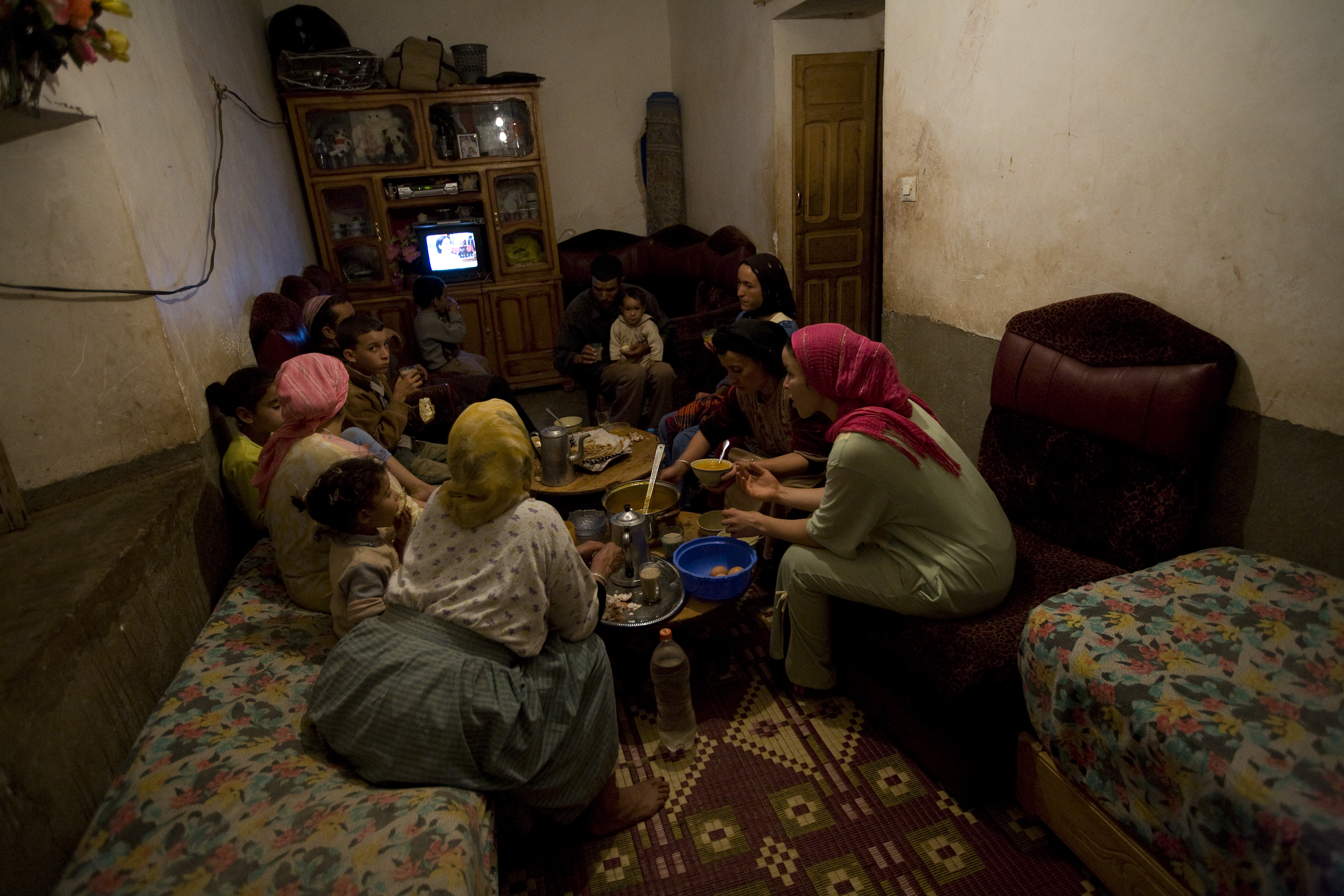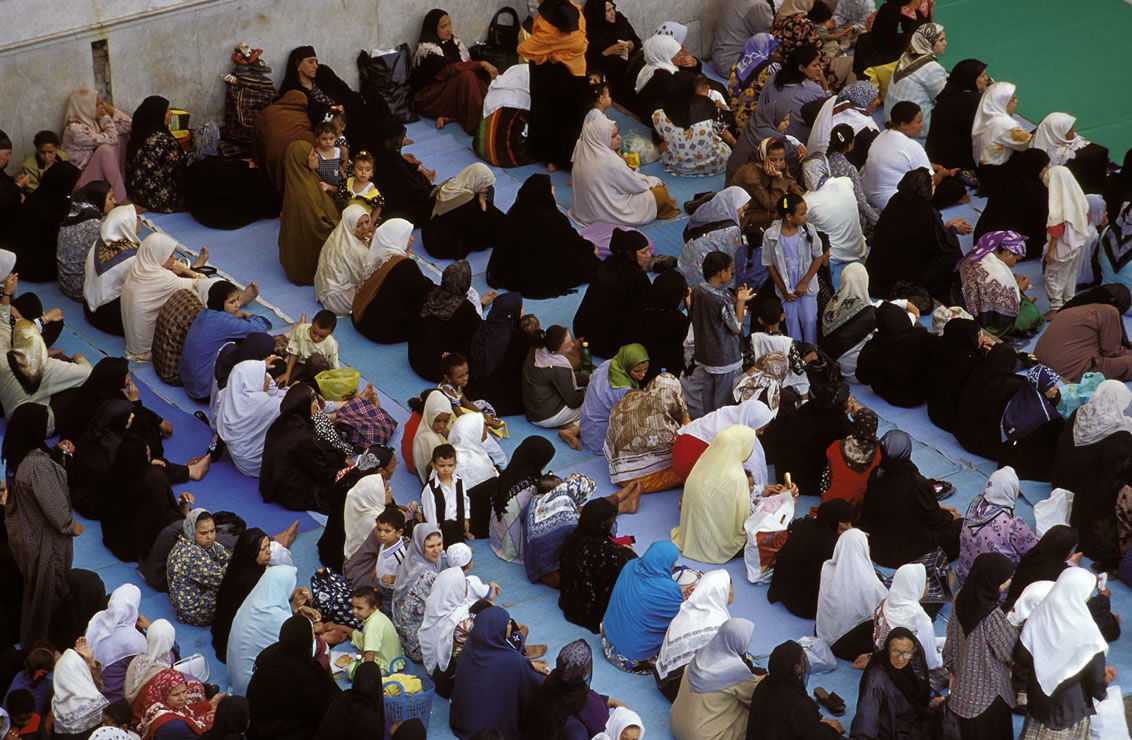 From the Archives – June 30, 2014
From the Archives – June 30, 2014
“Ramadan Kareem!” “Ramadan Mabrouk!” “Ramadan Mabarak!” may be familiar words to you…or not so much. Around the world, among Muslims, these are greetings of blessing for their holy month of Ramadan. In this month, all Islamic peoples are united in the observance of their religion, more than any other time of the year.
Ramadan is the 9th month of the Islamic calendar and is considered holy because Muhammad, Islam’s most revered prophet, reported receiving the Qu’ran during this month. At the sighting of the new moon at the beginning of Ramadan, Muslims begin a month-long exercise of six tenets of their faith, consistent, to a large extent, among all of the world’s practicing Muslims.
Fasting [Sawm (Arabic: صوم)] From sunrise to sunset, during Ramadan, devout Muslims fast. In some countries, in fact, it’s illegal for a Muslim to be seen eating or drinking during these hours. There are exceptions (young children, the sick, elderly, and others in a few defined temporary situations). However, the fast is intended to be complete during the day (no food, drink, smoking, sexual intercourse, or profane speech). At sunset, the fast is broken with a meal together as family and eating can continue into the night until just before sunrise the next day. Because of this “flipped day”, Muslims, when possible, sleep during the day or spend time in recreation, exercise, or visiting. The women must still cook for that “break-fast” meal. School and work hours are shortened during Ramadan because of the fast.
Tip for you: Be sensitive to your fasting friend or coworker. If possible refrain from eating, drinking, smoking in front of him/her. Invite them to break their fast with your family (it means a meal later than usual, if Ramadan is in the long summer months). Don’t miss an opportunity to join them if you’re invited to a meal in their home.
Charity [Sadaqah or Saddka (Arabic: صدقة, plural ṣadaqāt صدقات)] and/or Alms-giving [Zakāt (Arabic: زكاة )] Part of the reason for fasting is to experience the life of one poorer than you. The idea is to eat less and use the money saved to give to the poor during Ramadan. Islam has two types of charity – one is voluntary charity to the poor that is seen often during Ramadan; the other is the mandatory alms-giving, required by faithful adherents to Islam. Ramadan is sometimes the month when Muslims give their alms through their mosque(s).
Tip for you: You and your Muslim friends/colleagues may share a concern for the poor of your city or for an oppressed people group somewhere in the world. This could open a door for you to act together on behalf of those in need.
Prayers [Ṣalāt (Arabic: صلاة ṣalāt; pl. صلوات ṣalawāt)] Prayers are a major tenet of the Muslim faith. During Ramadan, prayers are considered even more powerful to the faithful Muslim. Entry into Paradise can hoped to be won by Muslims through the careful attention to religious practices during Ramadan. During the last 10 days of Ramadan, a special Night of Power [Laylat al-Qadr (Arabic: لیلة القدر)], is believed to have even greater weight in the practicing Muslim’s pursuit of favor with God.
Tip for you: Even if you do not usually notice your Muslim friend or coworker’s prayers, during Ramadan, you may see them praying in their homes or at their desks. The mosques in your neighborhood will be much more noticeably busy during Ramadan. Besides the usual Friday service, and the 5 regular prayer-times during the day, there are often special opportunities for Muslims to gather to pray and read and discuss the Qu’ran. Pray for them as they pray.
God-consciousness or Piety [Taqwa (Arabic: تقوى )] For many devout Muslims, Ramadan may not be so exceptional, except for the fast. Most, however, count on this month for its spiritual focus. Both men and women will have opportunities to learn more about their God and the teachings of their prophet Muhammad. The global observance of Ramadan is a galvanizing experience for Muslims, with each other, and with the history of their religion, and, their hope, with God.
Tip for you: Ramadan is an excellent time of the year to increase your own understanding of what your Muslim friends/co-workers believe. Questions about their faith are usually welcomed. Arguments about faith are not. Do your own homework about the faith issues where you may disagree with Islamic teaching. This type of information is prolific on the internet (especially related to differences in thinking between Christians and Muslims). Then you can ask or discuss the faith issues that matter most to your friends/colleagues, because during Ramadan, they have been thinking about them.
Community [Ummah (Arabic: أمة)] Breaking the fast together and praying together in the mosque are clear signs of the strong bond between Muslims, especially seen during Ramadan. Christians enjoy this experience through similar celebrations (Christmas and Easter, to name two) and through their faith in Christ, bringing them into the larger Family or Kingdom of God. This Muslim observance of Ramadan, in its 30-day concentration of focus and universal religious practice, is unique to this religion.
Tip for you: For some, the community of the Islamic world, in their religious practices and political views, can be a little uncomfortable. A good reminder to self is that Islam is a religion, and Muslims are people. Whatever you agree with or disagree with, regarding the religion, needs to be separate from how you engage with the persons who identify with a certain religion. All of us need community and affiliation. So don’t be put off by the Islamic practices you see in Ramadan. Remember, the people who are fasting, praying, and trying to understand God may share very similar concerns and struggles. AND if your Muslim friend/colleague is observing Ramadan away from his family/religious community, he or she is especially isolated and could really use your friendship during this time.
Ramadan’s Festival Day(s) [Eid ul-Fitr (Arabic: عيد الفطر)] – at the end of this month’s fasting and praying – in a future blog.
Muslim Website on Getting the Most Benefit Out of Ramadan
YouTube Video – Iftar (Breaking the Fast) Ramadan 2015 Around the World
YouTube Video – Ramadan | Month of Mercy | Almarai Emotional Commercial
Short Public Service Announcement on Breaking the Fast & Family Time Together After
California Muslim Teens Explaining Ramadan
What Growing Up in a Muslim Country Taught Us About Ramadan – Another Author’s View
Glossary of Islamic (Arabic) Terms for the Month of Ramadan
Arabic Words & English Transliteration
